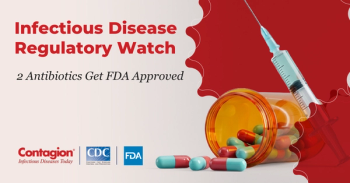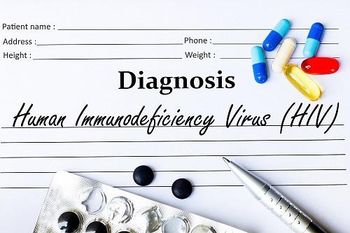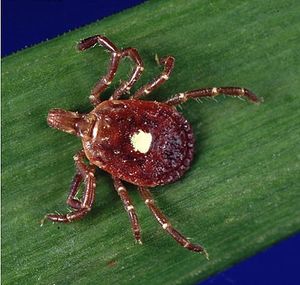
In a phase 3 trial, the novel oral antiviral pritelivir demonstrated superior lesion healing and better tolerability than existing therapies in immunocompromised patients with refractory or resistant herpes simplex virus infections.

In a phase 3 trial, the novel oral antiviral pritelivir demonstrated superior lesion healing and better tolerability than existing therapies in immunocompromised patients with refractory or resistant herpes simplex virus infections.

Findings from a growing body of randomized trials and real-world analyses show that starting metformin during acute SARS-CoV-2 infection is safe and significantly reduces the risk of developing long COVID.

A global review finds growing antimicrobial resistance among the main bacteria causing meningitis—especially in low- and middle-income countries—raising concerns about the continued effectiveness of standard treatments and the urgent need for stronger surveillance.

MicuRx Pharmaceuticals has received FDA clearance to begin a phase 2a clinical trial of MRX-5, a novel oral antibacterial therapy for patients with Mycobacterium abscessus pulmonary disease.

This week, read about the latest number of confirmed cases of measles in the US, novel findings around UTI treatment failure, an overview of zoliflodacin and gepotidacin, and more.

The American Academy of Pediatrics (AAP) has published its 2026 immunization schedule, reaffirming routine vaccination to protect children and adolescents against 18 preventable diseases.

Fedora Pharmaceuticals is presenting new preclinical data at the IMARI conference demonstrating that its lead candidate, FPI-2119, shows strong activity against some of the most dangerous drug-resistant Gram-negative infections, supporting its advancement toward clinical trials.

In the final FY2026 spending bill, Congress rejected proposed House Republican cuts of more than $1.7 billion and instead maintained bipartisan funding for HIV prevention and treatment programs, while urging the Trump administration to focus on effective implementation.

The federal agency gave the nod for Acon Laboratories’ Flowflex Plus RSV + Flu A/B + COVID 4-in-1 test that can detect all those respiratory viruses in a single test, which is indicated for use in both adults and children as young as 6 months.

Scynexis has secured FDA Qualified Infectious Disease Product (QIDP) and Fast Track designations for its next-generation antifungal SCY-247, underscoring the drug’s potential to address the escalating global threat of multidrug-resistant fungal infections such as Candida auris.

This week, read about the CDC's analysis on the continuing burden of COVID-19 on a certain population, watch an Emory nurse provide an overview of donning and doffing personal protective equipment when caring for patients with high-consequence infectious disease, a review of diagnostics and treatments for invasive candidiasis, and more.

In a joint statement by Secretary of State Marco Rubio and Secretary of Health and Human Services Robert F Kennedy, they announced the termination of the country’s membership in the global health organization.

Zepto Life Technology has introduced its FungiFlex Mold Panel, a plasma-based molecular test offered through a CLIA-certified reference laboratory that delivers rapid, noninvasive detection of 14 clinically important mold species linked to invasive fungal infections.

Valneva has voluntarily withdrawn its US regulatory applications for its chikungunya vaccine, IXCHIQ, after the FDA suspended the license and placed the program on clinical hold pending investigation of a newly reported serious adverse event.

The partnership is a global collaboration to develop Debio1453, a first-in-class antibiotic targeting multidrug-resistant gonorrhea, aiming to strengthen the fragile antibiotic pipeline and ensure future treatment options.

Nicholas Van Hise, PharmD, discusses a real world study, ROAR, showing that fecal microbiota, live-jslm (RBL), maintains strong efficacy and safety in preventing recurrent Clostridioides difficile infection (rCDI) in routine US clinical practice.

This week, read articles from our recent issue on topics including invasive fungal disease in transplantation, lenacapavir's role in PrEP, antimicrobial treatment around non–carbapenemase-producing carbapenem-resistant enterobacterales, and more.

We are launching our new monthly column looking at federal regulatory topics including recent decisions. In this column, we look at the FDA approvals of 2 antibiotics last month.

Here are some therapeutics and a vaccine that will be reporting data, starting a trial, or filing their data to regulatory agencies in order to seek approval this year.

This week, listen in on commentary around the changes to the childhood vaccine schedule, read SIDP's column on the next-generation antifungals as well as combination therapeutics for Candida auris, and the Clinical and Laboratory Standards Institute Subcommittee on Antimicrobial Susceptibility Testing breakpoint recommendations.

New federal guidance recommends childhood vaccines for 11 diseases, downsizing immunization protection from the previous list of 18 diseases.

This week, read about increasing influenza activity, an approach to de-escalating empiric broad spectrum antibiotics for clinically stable patients with community-onset sepsis, and more Emory Healthcare Media Day interviews around PPE and treating high-consequence infectious disease.

This week, check out our Media Day coverage from Emory, the WHO report on malaria, and more.

This week, learn more about Emory's approach around treating high-consequence infectious diseases such as Ebola, a UNC researcher's work in sequencing syphilis genomes in the search to develop a global vaccine, how the US is in danger of losing its elimination status for measles, and more.

Gilead Sciences reported positive phase 3 ARTISTRY-2 results demonstrating that a once-daily single-tablet combination of bictegravir and lenacapavir is statistically noninferior to bictegravir/emtricitabine/tenofovir alafenamide tablets in virologically suppressed adults with HIV. The company plans to file for regulatory submissions for approval.

With a novel, non–cross-resistant mechanism and phase 3 data showing noninferior efficacy to injectable standard therapy, zoliflodacin could become a novel treatment that expands clinician choice and strengthens global efforts to combat antimicrobial-resistant gonorrhea. Innoviva CMO David Altarac, MD, offers further insights about the newly-approved antibiotic and its potential place in the market.

This week, check out our coverage on 2 antibiotic FDA approvals, and clinicians weigh in on the ACIP recommendations on the hepatitis B virus (HBV) vaccine.

Reports are surfacing the federal agency is going to review products already reviewed and approved.

The federal agency approved Augmentin XR in just 2 months through the new CNPV pilot program, marking a potential step toward rebuilding domestic antibiotic manufacturing and addressing drug shortages.

This week, read our coverage on the CDC ACIP meetings on the hepatitis B virus (HBV) vaccine, modeling data on the potential consequences of HBV infections, liver cancer, and mortality when delaying the birth dose to 2 months, our latest podcast, and more.

Published: January 3rd 2023 | Updated:

Published: July 29th 2025 | Updated:

Published: December 26th 2024 | Updated:

Published: January 30th 2026 | Updated:

Published: November 13th 2025 | Updated:

Published: October 29th 2025 | Updated: